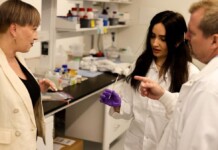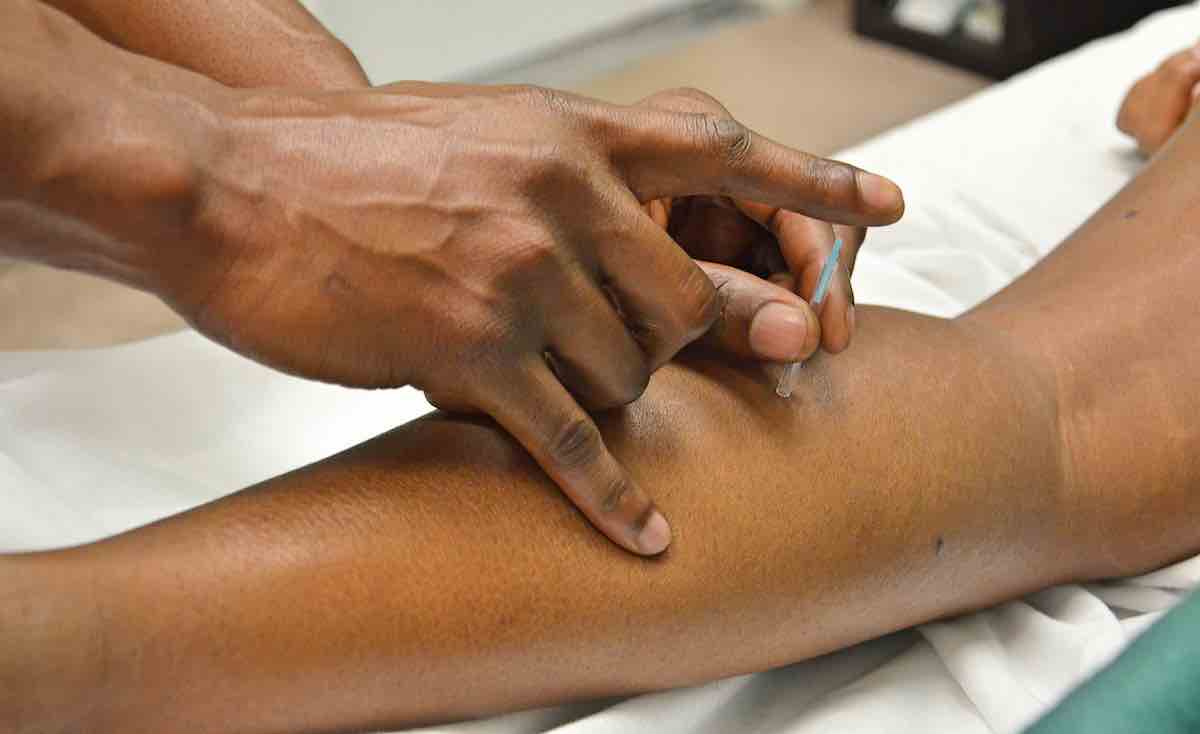Acupuncture has been used as a form of Eastern medicine for thousands of years – and now, these organizations are pushing for it to be elevated as a source of non-pharmaceutical pain relief, especially for recovering drug addicts.
Drugs, including opioids, are often prescribed to deal with a patient’s pain as a first line of treatment; yet only 23% of patients with chronic pain found opioids to be a successful treatment choice. Acupuncture, on the other hand, “has emerged in the U.S. as an evidence-based, safe, and cost-effective method to counter opioid addiction and pain associated with various other health ailments.”
The practice of acupuncture works by stimulating the nervous system – signals from the needle site are transmitted to the spinal cord to deactivate pain centers in the brain. Acupuncture has also been shown to improve the brain’s sensitivity to opioids which increases pain control and decreases the clinical utility of the pills.
42-year-old Shane Watson, a patient of the Modern Acupuncture franchise, is in long-term recovery from substance abuse issues. Though his abuse started in his youth and had devastating effects on his life, he is now a father who is six years sober.
RELATED: New Study Says That By Changing the Air We Breathe, Migraine Attacks Can Be Treated Without Medicine
Since his recovery, however, he has developed serious lower back issues, but cannot take any prescription pain killers – so he turned to acupuncture.
“I wish I had known about acupuncture years ago. The sense of calm and the immediate pain relief I feel after a treatment has been a game-changer,” said Watson. “I can’t describe how hard it is to live with a pain so debilitating that it makes it hard to do normal every day activities. I made a choice to stay clear of prescription pain killers, but I had to do something to relieve the pain. A friend recommended acupuncture and after my first appointment, I immediately found relief.”
Three stages of treatment, identified as detoxification, rehabilitation and relapse prevention, are intended to provide long-term results for recovering opioid addicts. The first stage is designed to offset opioid tolerance though direct treatments targeting pain symptoms. The second rehabilitation induces relaxation and stimulates the parasympathetic nervous system. Finally, relapse prevention encourages sustainable pain relief and prevent symptoms of drug cravings.
MORE: After Century of Removing Appendixes, Docs Find Antibiotics Can Be Enough Two-Thirds of the Time
Modern Acupuncture and the National Certification Commission for Acupuncture and Oriental Medicine are working to raise awareness for the alternative treatment in recognition of October 24th marking the 16th annual Acupuncture and Oriental Medicine Day.
This year’s event is especially significant since the World Health Organization will soon be recognizing traditional Chinese medicine in its influential global medical compendium for the first time ever.
“The medical profession is really picking up on the use of acupuncture as an alternative to opioids and using it more and more,” said Dr. Charles Anderson, a Johns Hopkins and Harvard trained newborn intensive care physician with degrees from Princeton University, Johns Hopkins, and Boston University.
Cure Your Friends Of Negativity By Sharing The News With Your Friends





















This is the most depressing and teeth-grinding thing I’ve ever seen on this site. The fact that W.H.O. has so badly slipped in its standards is bad enough, but promoting this quackery as a legitimate medical alternative? So much for starting my day with a pleasant smile…
Thanks for the excellent article. As a health care professional and also a patient who has felt the benefits of acupuncture, I can vouch for its value. It can’t help every single person who gets it, but for those it does help, it can be a blessing.
“John” was a typo, as we had “Johns” correctly written in the same paragraph. Thanks!
Instead of taking prescription pain-killers Shane Watson found acupuncture to be an immediate relief at least he was pleased with acupuncture.